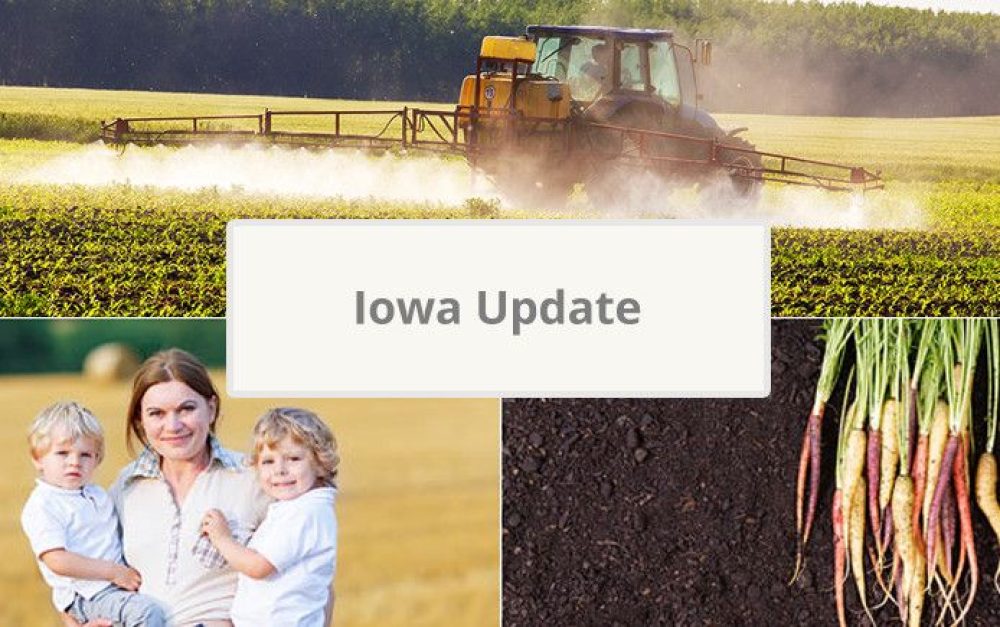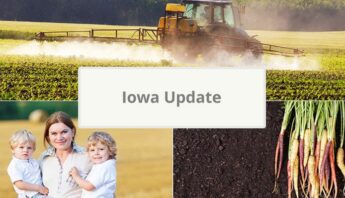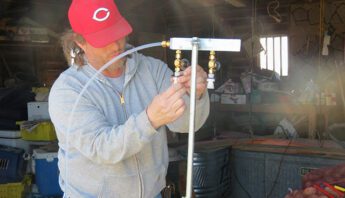Fields in our area have seen passes for the application of synthetic fertilizers and herbicides, some of which occurred on days where wind conditions exceeded levels for safe application and temperatures were conducive to vapor drift. Now, we are entering the application timeframe for insecticides and fungicides and the planes, helicopters, and ground rigs will be conspicuous for most of Iowa’s rural population.
I decided, several years ago, that I would share our farm’s pesticide misapplication stories with the hope that others could learn and, perhaps, be inspired to act. I hoped that some who used pesticides would, at the very least, do what it takes to use these products as safely as possible. And, perhaps, some might consider weaning themselves from reliance on chemicals for the management of pests in food production, public spaces, and even our own private lawns.
I realized that I might not change pesticide use practices for those already trapped in the pesticide treadmill. But, I believed that our story could inform others if they experienced their own pesticide trespass event. My voice could lend strength or provide some guidance to others as they navigate the maze of difficulties that arise when a pesticide encroaches on your space.
I know one thing for certain. If I had stayed silent, there would have been no chance of making a difference for anyone. Our farm would merely be another uncounted casualty.
If you would like to join me in working to make a difference, here are three suggestions:
Promote the use of FieldWatch in Iowa.
If you raise specialty crops or have bees, you should make sure you map your location in FieldWatch. If you know someone who is a pesticide applicator, ask them to check FieldWatch so they are aware of these sensitive crops and bees.
Report agricultural misapplications to the Pesticide Bureau in Iowa.
The Pesticide Bureau is responsible for the enforcement of proper pesticide application according to the use label for each product. If you witness drift or a misapplication, take the time to make a report. When we fail to report, there is no evidence that the problem exists, which makes it difficult to push for change.
If you have experienced chemical trespass, Practical Farmers of Iowa maintains an excellent resource page that can guide you through the process.
Sign on to at least one of PAN’s calls to action this year.
I realize your email inboxes and your lives are full. But, make it a goal to take at least one action to help us amplify the voices of those who believe we can grow in Iowa without relying on chemical reliant systems. While you are at it, invite a friend to join us!
Legislative opportunities
The recent legislative session ending in May featured a couple of bills signed into law that support Iowa’s rural communities. One bill provided support for the over-burdened, smaller-scale meat processors in the state, and the other made changes to address the struggling Emergency Medical Services (EMS) in rural communities.
The first bill established grants for Iowa’s small-scale meat processing businesses. The capacity for artisanal butchery services was strained when the large-scale processors were unable to meet demand due to the pandemic. Our friends at the Iowa Organic Association, Iowa Farmers Union, and Practical Farmers of Iowa were among those organizations promoting the passage of this bill.
The second bill makes it easier for counties to designate EMS as an essential service. This provides the opportunity to secure consistent funding and removes the uncertainty under prior law that required renewal every five years.
We are hopeful that these two examples can provide us with renewed energy as we look forward to being active in Iowa’s 2022 legislative session.
Clean water
The polluted state of Iowa’s surface water continues to be highlighted by the struggles Des Moines Water Works (DMWW) continues to face as it attempts to provide clean water to its customers. Apparently, it has progressed to the point that DMWW is considering drilling wells into the underground aquifer.
The sources of the problem and some of the likely solutions are largely identified. The run-off of fertilizers and farm chemicals is a result of “fence row to fence row” agriculture and use of tile drainage to move (polluted) water rapidly out of fields and into streams. Some of the simplest responses include buffer zones, cover crops, longer rotations that include perennial crops, managed drain systems and increased wetland areas.
At present, the response in Iowa has been to maintain a voluntary approach for dealing with run-off into Iowa’s surface water. As an Iowan, I was raised to care for our neighbors – including those who reside downstream. Sadly, chemical intensive agriculture fails to recognize a responsibility to its neighbors and it is now clear that volunteerism is not working.
USDA invites comments
USDA is requesting input to identify barriers that Black, Indigenous, and other People of Color (BIPOC) who farm and ranch may face as they attempt to obtain information and/or services. This is a significant opportunity to provide useful feedback as part of a first step towards addressing systemic problems.
If you are able to do so, please submit comments to the USDA by July 15. Or, you can provide comments to the National Sustainable Agriculture Coalition and they will use them to create a summarized submission to the USDA.
Upcoming events
Are you interested in learning something new? Here are a few opportunities:
You can view Iowa Organic Association’s May webinar Protect Your Crops from Pesticide Damage with DriftWatch by taking the link provided here.
The Tallgrass Prairie Center is hosting Native Seed: A Landowner’s Perspective on July 16 from 1:00 – 2:30 PM.
Practical Farmers of Iowa is hosting several on-farm “Catching Up” events in the coming weeks. You can learn about “Practical Integration and Rotation with Sheep and Cattle on a Vegetable Farm” in West Branch at Scattergood Farm on July 14. Or, you could learn about relay-cropping on July 15 in Washington or Fayette Counties at Grassway Farm or Long Creek Pastures. You can take the link to view numerous other opportunities as well.
Iowa Learning Farms will host a webinar titled Including the Stream Channel in a Comprehensive View of Water Quality on July 14.
PFI also continues to host a couple of older, but still relevant webinars titled Pesticide Drift: Response and Compensation (Rob Faux) and Pesticide Drift: Prevention and Response (Andy Dunham).







